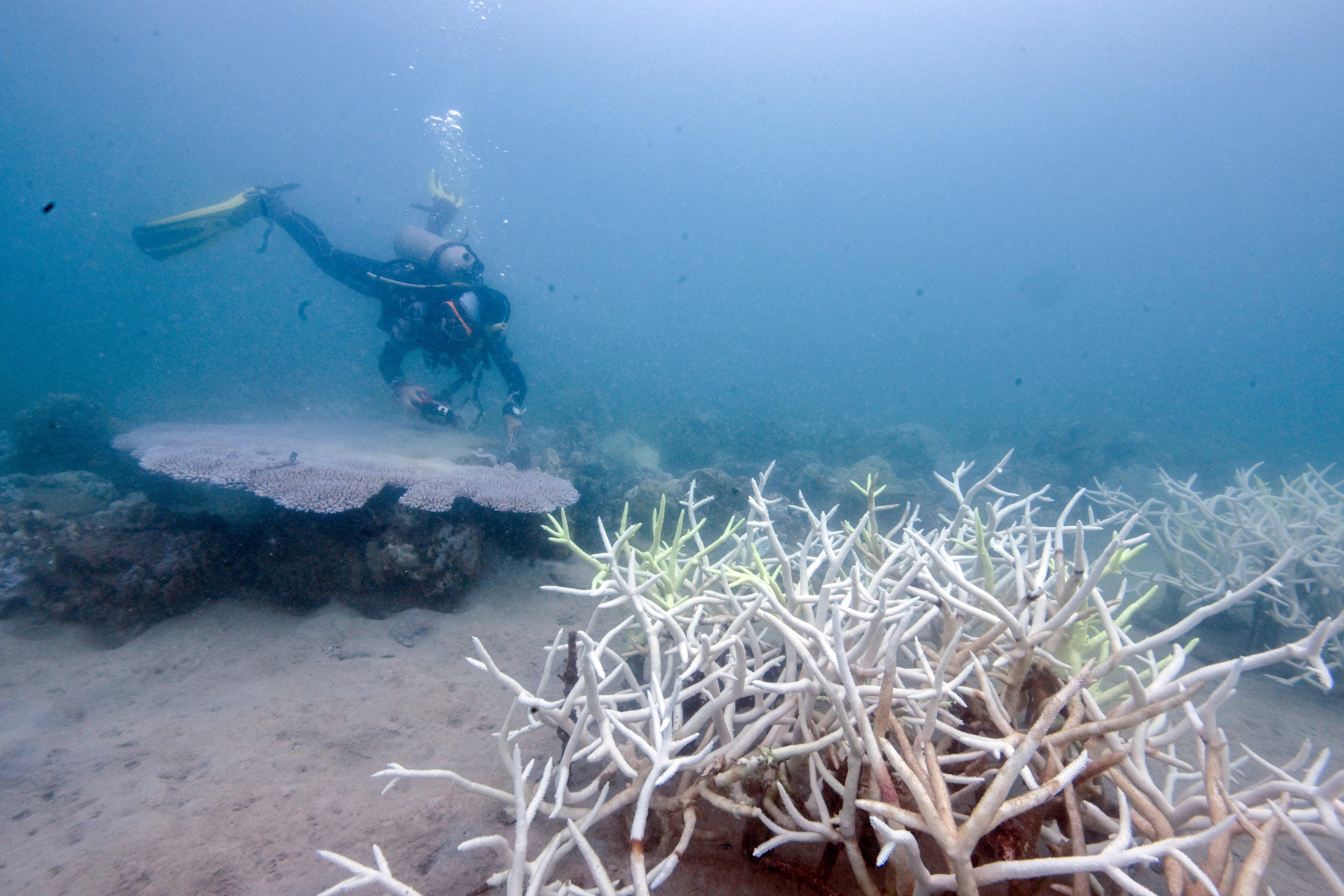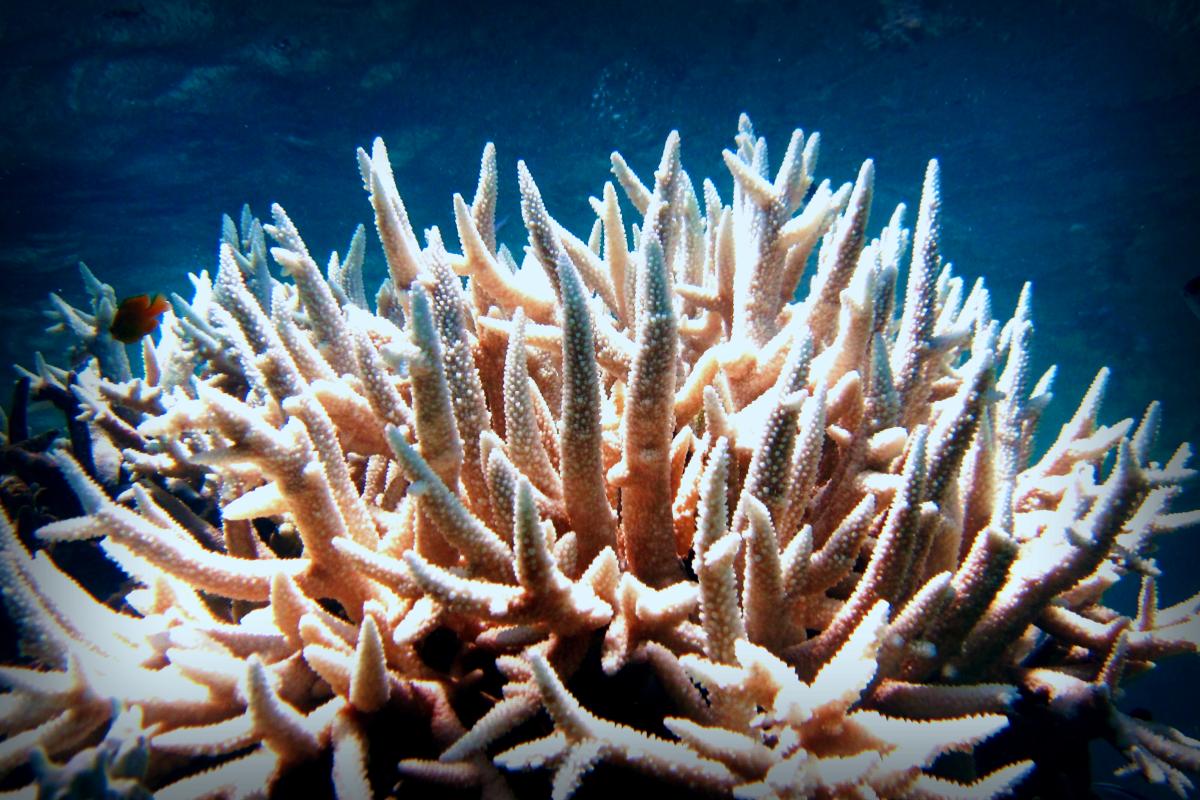According to a recent study by European scientists, our planet has hit its first major climate tipping point, and it’s all due to the worsening condition of coral reefs.
The second edition of the Global Tipping Points Report, released on October 13, reveals that warm-water coral reefs, essential for nearly 1 billion people and a quarter of all marine species, are currently “passing their tipping point.”
As per the findings, there’s a significant die-off of corals happening now. If we don’t manage to curb global warming, these vital reefs will likely disappear, even though there might be small areas that can survive if they receive adequate protection.
Understanding a ‘Tipping Point’
A “tipping point” refers to a situation where a minor change can cause a drastic shift in a complex system, leading to long-lasting consequences. In the context of climate change, these moments occur when temperatures rise excessively, resulting in irreversible impacts.
The discussion on climate tipping points has grown more intense over the last twenty years, as indicated by an early study from this year.
Professor Tim Lenton from the University of Exeter’s Global Systems Institute and lead writer of the current report, emphasized that we’re quickly nearing several Earth system tipping points that could lead to disastrous changes for our planet and its inhabitants. He stressed the urgent need for global leaders to take unprecedented measures now.
Other crucial tipping points observed include melting ice caps, dieback of the Amazon rainforest, and collapse of critical ocean currents.

The Reality of Marine Threats
According to Lenton’s Email to USA TODAY, the threat to coral reefs is dire. “These ecosystems livelihood supports for 500 million people, and their services are valued at over $2 trillion yearly—this includes maintaining fisheries and offering crucial coastal defense against storms and rising sea levels for communities nearby.”
Corals are essential for ocean health—despite covering just 0.2% of the seafloor, they house at least 25% of all marine creatures. They serve as safe havens for young fish and provide essential habitats for smaller organisms, which large fish often feed on.
A previous report from 2022 indicated that since 2009, almost 15% of the world’s coral reefs have disappeared.
Discovering Coral Reefs as the First Climate Tipping Point
Lenton explains in his email that researchers determined the coral reef tipping point occurs around 1.2 degrees Celsius (more than 2 degrees Fahrenheit). Currently, we often hover close to 1.5 degrees above pre-industrial temperatures.
This steady increase has brought about marine heatwaves, wreaking havoc on 80% of the planet’s coral systems. It looks likely that we’ll exceed that 1.5-degree mark, potentially as soon as 2030, leading to widespread coral dieback.
Responses from Other Experts
Experts unaffiliated with the new report agree that coral reefs have undoubtedly reached their breaking point. William F. Precht, from Bio-Tech Consulting, remarked via email: “Many reefs have definitely crossed their tipping point, especially those in Florida and the Caribbean. Climate change is the unchecked enemy bringing on threats like bleaching, diseases among corals, increased storm activity, and ocean acidification, all jeopardizing reef health. The root causes need to be addressed urgently.”
Have We Passed the Tipping Point Long Ago?
Terry Hughes, an expert from James Cook University in Australia, claimed in an email to USA TODAY that perhaps we reached the coral reefs’ tipping point long ago, observing a transition to a different ecosystem. He noted the first global coral bleaching event happened in 1998, which was then the hottest year recorded. It was predicted that such destructive events would occur repeatedly as temperatures climbed due to climate change.
Indeed, in the past decade, Australia’s Great Barrier Reef has faced substantial bleaching multiple times—in 2002, 2016, 2017, 2020, 2022, 2024, and 2025. What’s concerning, Hughes says, is the decreasing number of unbleached reefs left on the planet.
“The report is yet another alarm bell for governments worldwide to take swift action regarding the coral reef crisis. Local measures alone won’t cut it—they often mask a lack of meaningful responses to climate change. Countries like the USA, Australia, and Saudi Arabia may project a picture of leading on reef protection by restoring small parts, but they still hesitate to reduce fossil fuel use,” he highlights.
What Can Individuals Do?
Lenton offers a message of hope: “Everyone can help create positive tipping points that assist the shift to zero emissions, thus lowering the risk from other climate tipping points. For instance, choosing eco-friendly technology—like solar panels or electric vehicles—fuels enthusiasm and innovation, making these solutions more feasible for others, thereby creating a snowball effect.”
There’s been some encouraging advancement lately: “Since the release of the previous Global Tipping Points Report, we’ve witnessed a sizable push towards adopting solar energy and electric cars. But we must strive for more and act faster to capitalize on promising tipping point opportunities. Together, we can dramatically reduce greenhouse gas emissions, steering our planet away from disaster and towards a brighter, sustainable future.”
This piece was first featured in USA TODAY:First Climate Tipping Point Triggered by Coral Reef Collapse.



















